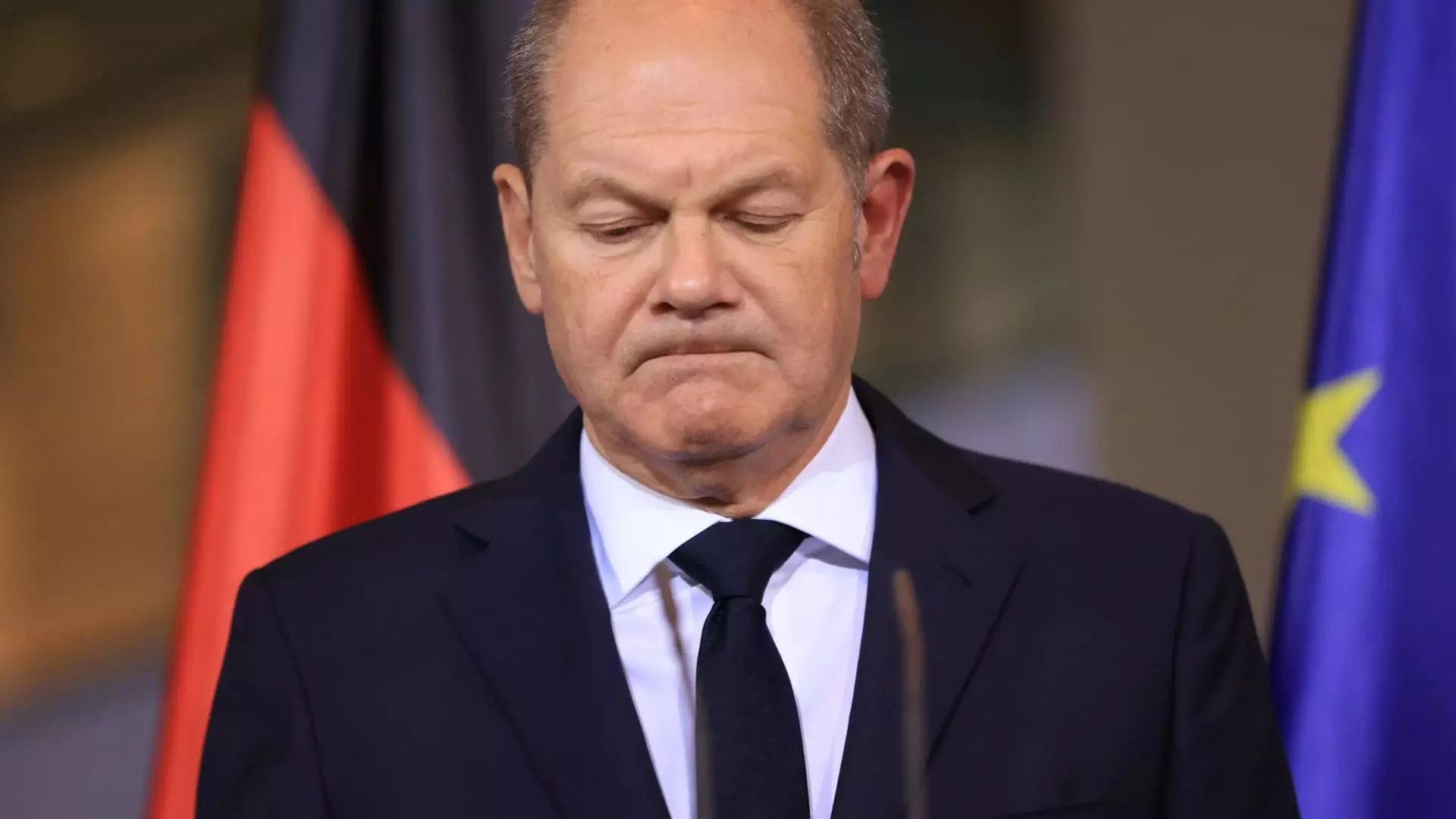Germany, once hailed as Europe’s economic powerhouse, now finds itself grappling with precarious financial circumstances. Following a narrow escape from a technical recession in the third quarter of 2023—with a modest GDP growth of 0.2% after a contraction of 0.3%—the nation is facing a bleak economic outlook. The German Finance Ministry’s revised expectation of contraction rather than growth has exacerbated concerns. This situation is compounded by various indicators signaling stagnation, particularly evident in the country’s Composite Purchasing Managers’ Index (PMI), which, despite a slight uptick in October, remains in a contracting territory.
As the shadows of economic uncertainty loom larger, the recent ascension of Donald Trump to the U.S. presidency poses a significant risk to Germany’s economic recovery efforts. Experts warn that this political shift abroad could send shockwaves through the European economy, particularly affecting Germany’s export-driven model.
Moritz Schularick, president of the Kiel Institute for the World Economy, articulated the potential fallout in a recent analysis: “Donald Trump’s likely election victory marks the beginning of the most difficult economic moment in the history of the Federal Republic of Germany.” Such an assessment underscores the interconnectedness of global economies and how a shift in U.S. policy could exacerbate existing vulnerabilities within Germany. The ramifications could extend beyond mere trade relations, reaching into broader fields such as security policy, which Germany may not be ready to navigate successfully.
Germany’s heavy reliance on exports has positioned it precariously amid potential tariff hikes. The U.S. has increasingly assumed the role of a vital trading partner for Germany—now the second-largest after China—accounting for approximately 9.9% of German exports as of 2023. Trump’s previous hints at imposing steep tariffs ranging from 10% to 20% on imports could cripple German exports. According to the ifo Institute, if such measures were enacted, German exporters could face substantial losses amounting to EUR 33 billion, with exports to the U.S. projected to dip by around 15%.
Particular industries within Germany are disproportionately susceptible to the potential fallout from heightened trade restrictions. The automotive and chemical sectors, which are integral components of the German industrial landscape, may see fierce challenges if Trump’s proposed tariffs come to fruition. The historical significance of these industries highlights the stakes involved—not just for individual businesses, but for the entire German economy, which relies on these sectors to maintain a competitive edge globally.
Lisandra Flach from the ifo Center for International Economics has posited that Germany and the broader EU need to proactively bolster their economic strategies in light of diminishing U.S. cooperation on the global stage. This strategic realignment could involve deeper integration within the EU market and the consideration of credible retaliatory measures against U.S. actions. Such preemptive steps may either mitigate risk or compound existing issues, depending on their execution.
The precarious situation is intensified by internal political turmoil within Germany. The recent dismissal of Finance Minister Christian Lindner by Chancellor Olaf Scholz is indicative of a deepening crisis in governance. This disruption comes as German officials rush to adjust their diplomatic postures in anticipation of Trump’s administration. Despite this upheaval, figures like Scholz and Lindner extended congratulations to Trump post-election, striving to maintain Germany’s image as a reliable partner on the global stage.
Lindner’s remarks—encouraging Europe to engage proactively with Trump—reflect an understanding that the coming months will require robust diplomatic efforts to safeguard economic interests. He previously warned that U.S. trade policies could significantly impact Europe, emphasizing the necessity of creating a framework for dialogue to avert conflicts.
At this juncture, it is evident that the dual challenges of external pressure from U.S. policies and internal governance struggles will require Germany to adopt a multifaceted approach to navigate the uncertain economic waters ahead. As Germany braves the prospect of a more hostile trade environment under Trump’s administration, its leaders must not only brace for immediate repercussions but also seek to strengthen domestic resilience and international alliances. Ongoing strategic discussions will be crucial in preparing for an era that might redefine the landscape of global trade and economic cooperation for Germany and Europe. The path forward will demand adaptability, foresight, and a unified approach to weather the impending storm.



Leave a Reply